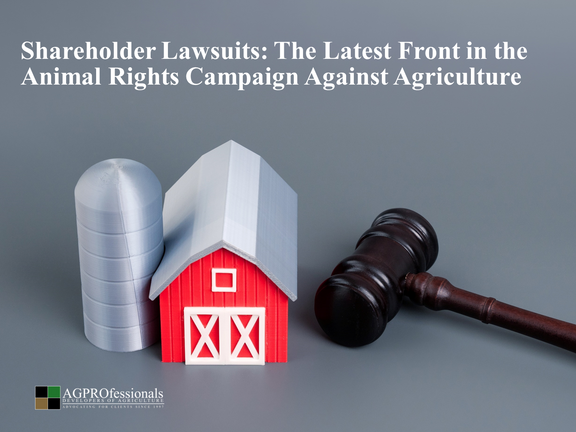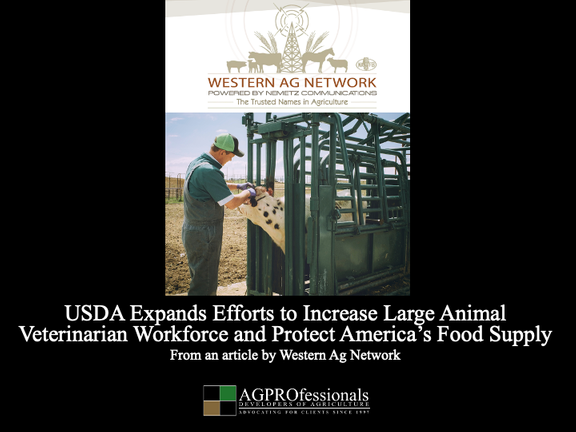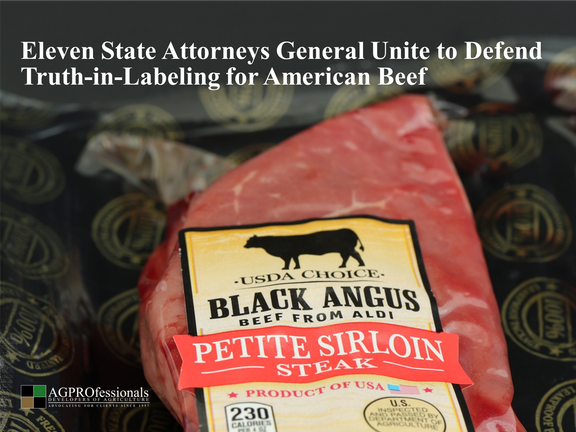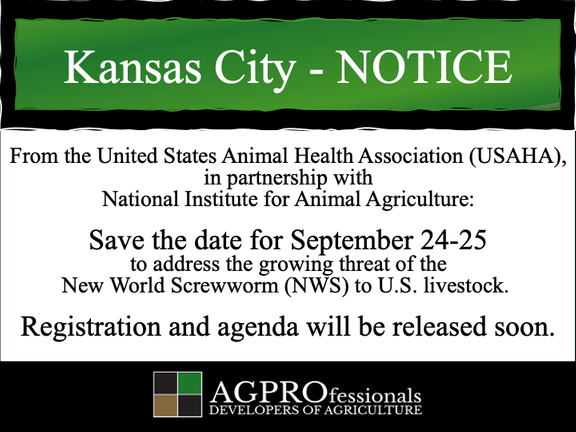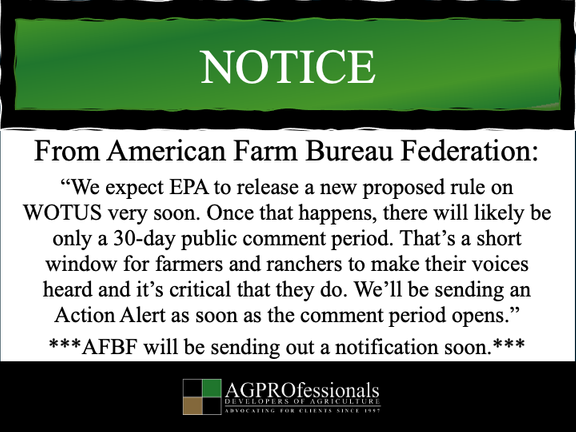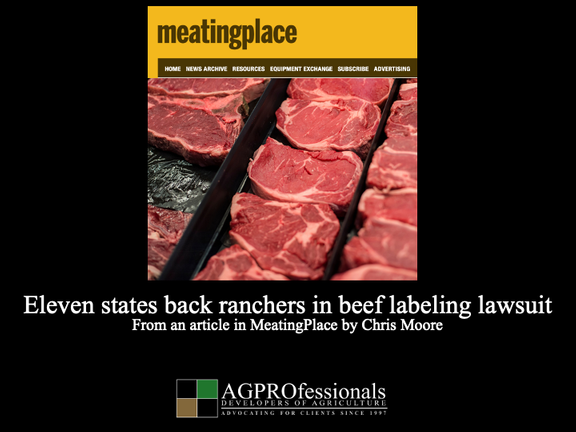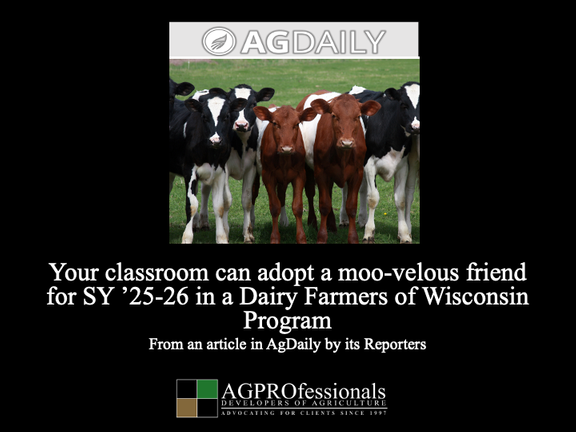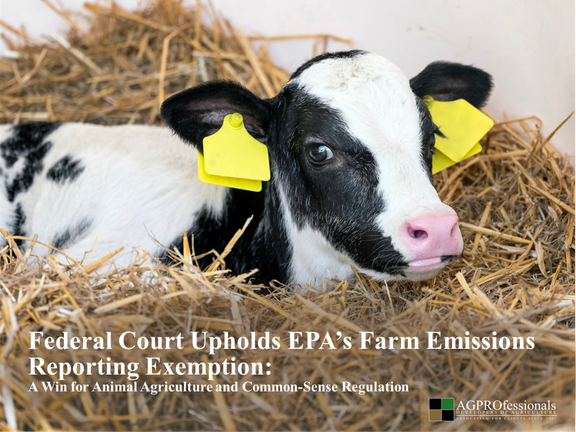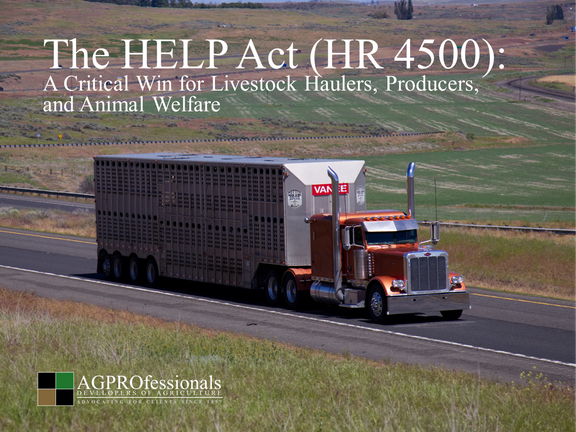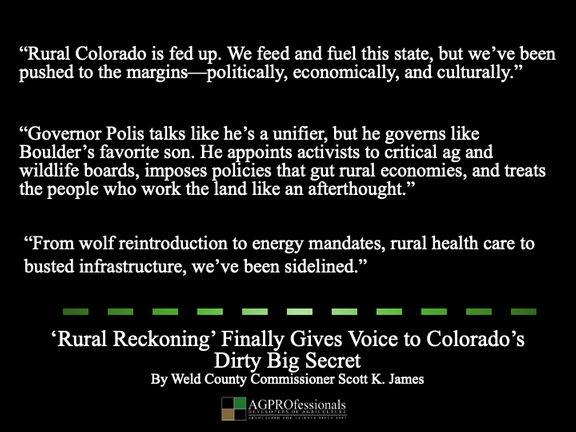Articles and Information
News and Information About Agriculture
Search applies to visible posts only. Load more to expand search results.
Shareholder Lawsuits: The Latest Front in the Animal Rights Campaign Against Agriculture
AGPROfessionals News Desk
A new lawsuit filed against Tyson Foods has made headlines. At first glance, it looks like a concerned shareholder simply demanding transparency. Filed in Delaware’s Court of Chancery, the suit seeks to force Tyson to turn over internal records about its poultry operations, citing both worker and animal welfare allegations. The plaintiff in this case, Michael Castagna, is described as a Tyson shareholder, but the suit is actually being driven by a new animal rights group, Legal Impact for Chickens (LIC). LIC characterizes the case as a shareholder “books-and-records” demand under Section 220 of Delaware law.
Legal Action for Chickens (LIC)
LIC is a California-based animal rights litigation group that received its 501 (c) (3) status in March 2022. A look at their first IRS Form 990 states, “Legal Impact for Chickens’ mission is to protect the welfare of farmed animals (livestock and poultry) through the use of the legal system. We primarily strive to achieve this goal through civil litigation.”
A review of their leadership team, most of whom previously worked at organizations like PETA, the Animal Legal Defense Fund (ALDF), Food and Water Watch, Mercy For Animals, and the Humane Society of the United States (now called A Humane World for Animals), shines a light on their true agenda. The groups affiliated with the leadership team use animal welfare as a cover and openly support ending the use of animals for food entirely.
moreUSDA Expands Efforts to Increase Large Animal Veterinarian Workforce and Protect America’s Food Supply
From an article by Western Ag Network
“U.S. Secretary of Agriculture Brooke L. Rollins has announced a commitment to new actions to increase the number of rural food animal veterinarians across the U.S. and recruit new veterinarians to join the U.S. Department of Agriculture (USDA) in their role to protect American ranchers, animals, and our food supply.
Secretary Rollins also announced two awardees of the Veterinary Services Grant Program which will allow for expanded capabilities to serve livestock producers in rural Mississippi and opened a new consolidated USDA office with the Rural Development, the Farm Service Agency, and the Mississippi Farm Bureau in line with USDA’s reorganization efforts. The Secretary was joined by Governor of Mississippi Tate Reeves, Senator Cindy Hyde-Smith of Mississippi, Mississippi State University (MSU) President Dr. Mark Keenum, and Mississippi Farm Bureau President Mike McCormick.
“Rural veterinarians are vital for the agricultural economy in the United States. Our farmers and ranchers rely on these critical services to prevent the transmission of animal disease, protect our food supply, and support America’s rural economy. As the number of rural food animal veterinarians continues to decline, USDA is putting Farmers First to ensure we build back our first line of defense in our animal food production system – the rural veterinarian. With these new investments in scholarships and pay incentives, USDA is not only strengthening our animal food production system but also listening to producers and veterinarians across the country to ensure our programs meet real-world needs. Together, we will keep America’s food supply strong, safe, and secure,” said Secretary Brooke Rollins.
moreEleven State Attorneys General Unite to Defend Truth-in-Labeling for American Beef
AGPROfessionals News Desk
A Landmark Coalition for American Beef
A bipartisan coalition of 11 state attorneys general, led by South Dakota Attorney General Marty Jackley, has filed an amicus curiae brief in the U.S. Court of Appeals for the Eighth Circuit. This coalition seeks to uphold a lower court ruling that challenges labeling foreign beef as “Product of USA.”
This fight is about far more than a single label. It is about truth in commerce, constitutional state powers, and defending the economic rights of American beef producers.
The Case at the Core
The lawsuit, brought by South Dakota ranchers, challenges the long-standing USDA policy that allowed processors to use the “Product of USA” label on beef processed or packaged in the United States, even if the cattle were born, raised, and slaughtered in other countries. The Federal Meat Inspection Act (FMIA) explicitly prohibits false or misleading labeling. USDA’s own 2022 consumer research shows that 84% of Americans believe “Product of USA” means the animal was born, raised, slaughtered, and processed in the United States. This consumer expectation calls into question the current practice that allows processors to label beef raised and slaughtered abroad as “Product of USA.”
moreNew World Screwworm symposium September 24-25, 2025
From the United States Animal Health Association (USAHA), in partnership with National Institute for Animal Agriculture:
“Save the date for September 24-25 to address the growing threat of the New World Screwworm (NWS) to U.S. livestock.
The United States Animal Health Association (USAHA) will host a timely and critical New World Screwworm symposium September 24-25, 2025 to address the growing threat of the New World Screwworm (NWS) to U.S. animal populations. USAHA is pleased to collaborate with The National Institute for Animal Agriculture (NIAA) to provide a solutions-based effort to help inform stakeholders on preparedness and mitigation should it reach the U.S.
NWS is a destructive pest whose larvae infest living tissue, causing severe harm or death in livestock, pets, wildlife, and, in rare cases, humans. With increased global movement and ecological shifts of NWS northward, the risk of NWS re-entering the U.S. has become an urgent concern.
This event will foster collaboration across veterinary, livestock production, and wildlife management communities. Attendees will gain insights into current research, prevention strategies, and treatment protocols, and participate in cross-sector discussions aimed at strengthening outbreak preparedness. Together, we will advance a unified approach to mitigating the serious threat of NWS.
moreProposed WOTUS Rule Expected Soon
American Farm Bureau Federation
Notice from the American Farm Bureau Association:
“Farmers and ranchers are committed to protecting clean water. But commonsense efforts to protect the environment are made harder when federal rules are confusing or overreaching. That’s why the Waters of the U.S. (WOTUS) rule has remained a top concern for farmers and ranchers nationwide.
The definition of WOTUS has bounced back and forth between administrations for over a decade, creating uncertainty and risk for landowners. In 2023, the EPA and U.S. Army Corps of Engineers finalized a WOTUS rule that reintroduced a vague and unworkable standard, one that was later rejected by the Supreme Court in Sackett v. EPA. That ruling was a major win for agriculture, establishing clear limits on federal overreach and eliminating the “significant nexus” test. However, the updated rule that followed still leaves in place broad, unclear standards that continue to create confusion and concern.
What’s happening: We expect EPA to release a new proposed rule on WOTUS very soon. Once that happens, there will likely be only a 30-day public comment period. That’s a short window for farmers and ranchers to make their voices heard and it’s critical that they do. We’ll be sending an Action Alert as soon as the comment period opens.
moreEleven states back ranchers in beef labeling lawsuit
From an article in MeatingPlace by Chris Moore
A coalition of 11 state attorneys general filed an amicus brief supporting cattle ranchers in a lawsuit accusing major beef processors of misusing the “Product of USA” label on foreign-sourced beef.
The case, brought by South Dakota ranchers against JBS Foods, Tyson Foods, Cargill Meat Solutions and National Beef Packing Company, claims the companies wrongly labeled imported beef as domestic.
The U.S. District Court of South Dakota sided with the ranchers, but the ruling is now under review by the 8th U.S. Circuit Court of Appeals. In their brief, the attorneys general argued the Department of Agriculture has acknowledged that applying the label to foreign beef conflicts with federal requirements, and they urged the court to order the companies to stop the practice.
The coalition includes Colorado, Kansas, Idaho, Montana, Nebraska, New Mexico, North Dakota, Oklahoma, South Dakota, Texas and Wyoming.
moreYour classroom can adopt a moo-velous friend for SY ’25-26
From an article in AgDaily by its Reporters
Dairy Farmers of Wisconsin and Discover Dairy are inviting educators to register for the popular Adopt a Cow program, now open for the 2025-26 school year. This udderly delightful, and completely free, experience connects students with a real Wisconsin calf and her farm family, turning agriculture education into an unforgettable adventure.
“Adopt-A-Cow provides an engaging way to connect elementary school students to agriculture and learn about their farmer next door,” said Erika Schade, DFW’s School & Community Programs Manager. “Last year, we reached 55,000 students in over 1,500 classrooms, helping them gain a better understanding of how dairy products reach their tables.”
Each participating Wisconsin classroom is matched with a calf and receives regular photo and video updates, farm stories and educational materials throughout the school year. Students learn about the calf’s food, environment and daily care, while gaining insight into the farmers who care for her. Supplemental lessons and hands-on activities keep students engaged year-round and help connect the experience to subjects like science, math and reading. Many lessons align with Common Core standards.
moreFederal Court Upholds EPA's Farm Emissions Reporting Exemption
AGPROfessionals News Desk
Federal Court Upholds EPA’s Farm Emissions Reporting Exemption: A Win for Animal Agriculture and Common-Sense Regulation
Landmark Decision Protects Farmers from Burdensome Federal Paperwork
August 7, 2025, the U.S. District Court for the District of Columbia upheld a critical Environmental Protection Agency (EPA) exemption that protects farmers and ranchers from having to report routine air emissions from the natural breakdown of animal waste. This ruling affirms the EPA’s 2019 final rule under the Emergency Planning and Community Right-to-Know Act (EPCRA), which clarified that such reporting is not required when emissions are already exempt under the Comprehensive Environmental Response, Compensation, and Liability Act (CERCLA), the federal Superfund law.
This exemption has far-reaching implications for livestock producers across the United States, safeguarding agricultural operations from unnecessary regulatory burdens that were never intended for natural, biological processes.
The Legal Journey: Two Decades in the Making
The court’s decision stems from a long-running legal debate over whether farms should be required to report emissions like ammonia, which occur naturally as manure decomposes.
moreThe HELP Act - HR 4500
AGPROfessionals News Desk
The HELP Act (HR 4500): A Critical Win for Livestock Haulers, Producers, and Animal Welfare
Colorado Congressman Jeff Hurd (CO-03) has introduced the Hauling Exemptions for Livestock Protection (HELP) Act (H.R. 4500), a long-awaited piece of legislation addressing the issues around livestock transportation and the Hours of Service and ELD Mandate. It is backed by a broad coalition of agricultural organizations and lawmakers. The bill stands to permanently exempt livestock, insect, and aquatic animal haulers from the restrictive federal Hours-of-Service (HOS) and Electronic Logging Device (ELD) regulations.
As advocates for rural America, AGPROfessionals supports the HELP Act and urges swift passage to safeguard the integrity of the livestock industry, ensure the welfare of live animals in transit, and support the small businesses and drivers that keep our supply chain strong.
A Look Back: How the ELD Mandate Affected Livestock Haulers
In 2018, the Federal Motor Carrier Safety Administration (FMCSA) began enforcing the ELD Mandate, under the Moving Ahead for Progress in the 21st Century Act (MAP-21). This regulation required commercial motor vehicles to install electronic logging devices to track driver hours and limit driving time to prevent fatigue. While well-intentioned for general freight haulers, this “one-size-fits-all” regulation proved to be challenging for livestock transporters.
more‘Rural Reckoning’ Finally Gives Voice to Colorado’s Dirty Big Secret
By Weld County Commissioner Scott K James
Weld County is our headquarters and it is where AGPROfessionals got its start. County Commissioner James is not alone in his views.
"As a Weld County Commissioner, I’m echoing the Rural Reckoning series—rural Colorado is fed up with being sidelined, and it’s time the Capitol listened.
When Colorado Politics and The Denver Gazette launched their “Rural Reckoning” series, it felt like someone finally stepped out of the Denver-Boulder bubble, looked east of I-25, and said, “Wait, there’s life out there?” Vince Bzdek’s most recent editorial doesn’t flinch from the obvious: the gap between Colorado’s rural roots and its urban crown is starting to look less like a crack and more like the San Andreas Fault.
To his credit, and this isn’t just lip service, Vince approaches the subject with something most statewide media outlets lost years ago: curiosity laced with humility. He doesn’t pretend there’s a single villain or one easy fix. Instead, he gives space to the cultural, economic, and political frustrations simmering on both sides of the divide.
more
